Meet Ireti: The Avatar Of Africa’s Thriving Streetwear Scene
Over the last three decades, streetwear in Africa has morphed from a niche and DIY-centric movement into a booming market that is quickly catching the attention of the rest of the world. African streetwear, although often inspired by styles seen more frequently in the West, also has its roots in African culture. It represents a creative act of reclaiming and asserting African identity, particularly in light of the long history of cultural appropriation and misrepresentation in global media.
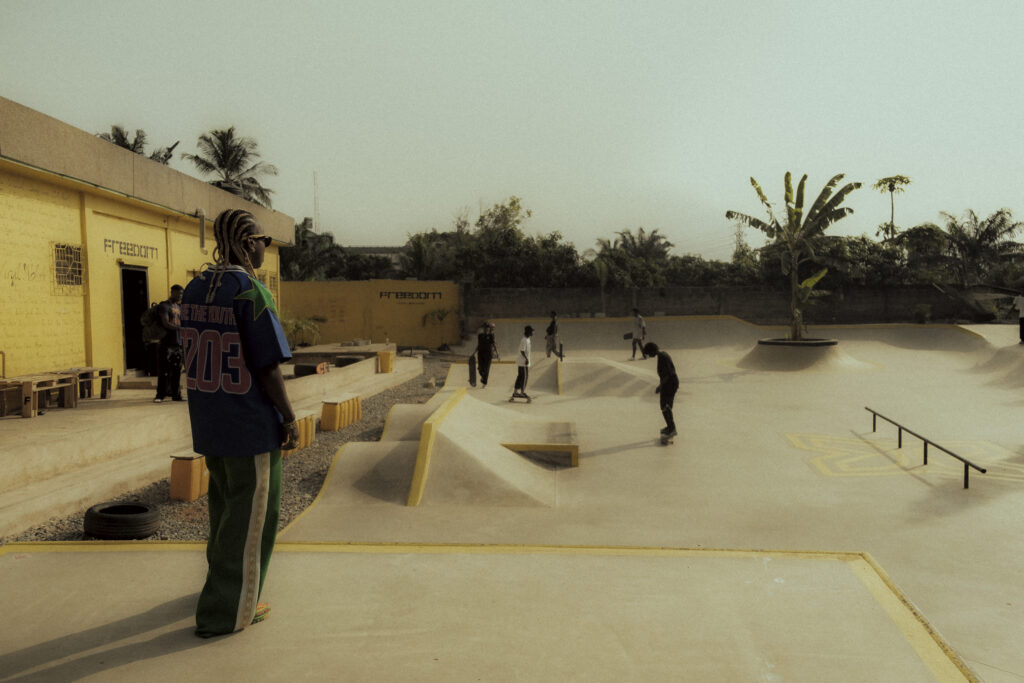
At the forefront of this momentum behind African streetwear, and African fashion in general, are young entrepreneurs and creatives who are striving to make a change. As you may already know, GUAP’s main mission is to be the first to cover emerging talents and creative scenes globally. This is why 23-year-old Iretidayo Zaccheaus, a key player in the African streetwear scene, is one of our first cover stars of 2023.
Iretidayo – Ireti for short – is best known for starting Street Souk; Africa’s largest streetwear convention. “My mom started a fashion convention in Nigeria, selling pieces for mostly people her age,” she told us at her cover shoot. “I went one year and I realized, this is super cool, and that I could definitely do something similar for my generation too.”
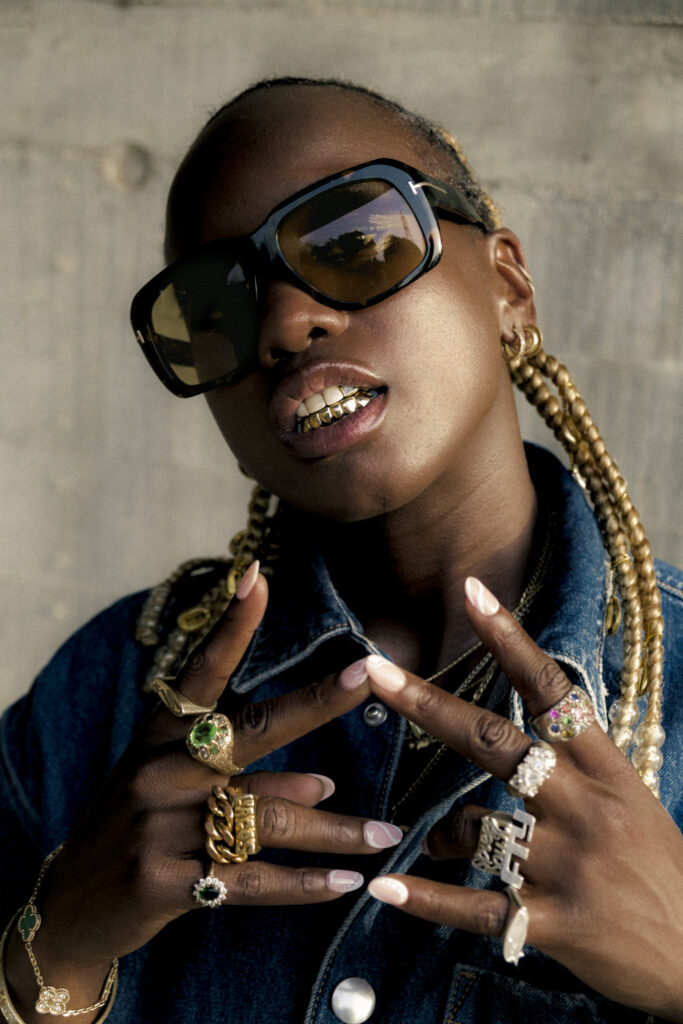
In 2018, Ireti organised the first ever Street Souk in Lagos, Nigeria, welcoming diverse streetwear brands and attendees from all over Africa. Unbeknownst to Ireti, this was the start of a new era for African streetwear. Street Souk went on to become a leading fair, giving streetwear brands a platform, and streetwear lovers a community to thrive in. Held annually, the event is a melting pot of creativity, style, and cultural expression, where local designers, artists, and vendors come together to showcase their unique streetwear creations. The fair has been the launching pad for many young brands in Africa.
Ireti attributes her love for fashion, particularly streetwear, to her upbringing and family. Her elder brother Teezee is a musician and a style icon in his own right. “I got interested in fashion because of my big brother, Teezee, and my cousins.” Ireti tells us. “Everyone was always just into fashion and shoes, so I kind of grew up around that. Pop culture and music videos growing up played a big part too. I just realised that I like what these people are wearing. And that’s where my love for streetwear and fashion came from initially.”
The cover shoot took place in Ghana, specifically in the Freedom Skate Park in Accra. This was a fitting location as this is where the skate community, a community very central to the African streetwear scene, particularly in Ghana, go to skate and hang out.
Ireti showed up on set full of warm and welcoming energy, the beads on her platinum blonde braids rattling softly as she embraced everyone. True to her love for indigenous streetwear brands, the Nigerian streetwear aficionado sported an oversized neon pink graphic T-shirt, paired with half-and-half Adire shorts – merch from the most recent Homecoming festival – finished off with some dad sneakers. Her calm but friendly presence immediately brightened up the atmosphere.
We kept the African streetwear thread going for the cover shoot. Ireti wore pieces from streetwear brands Free The Youth, Subwae Studios, and Palmwine Icecream, all Ghana-based, which was only right since we were shooting in Ghana.
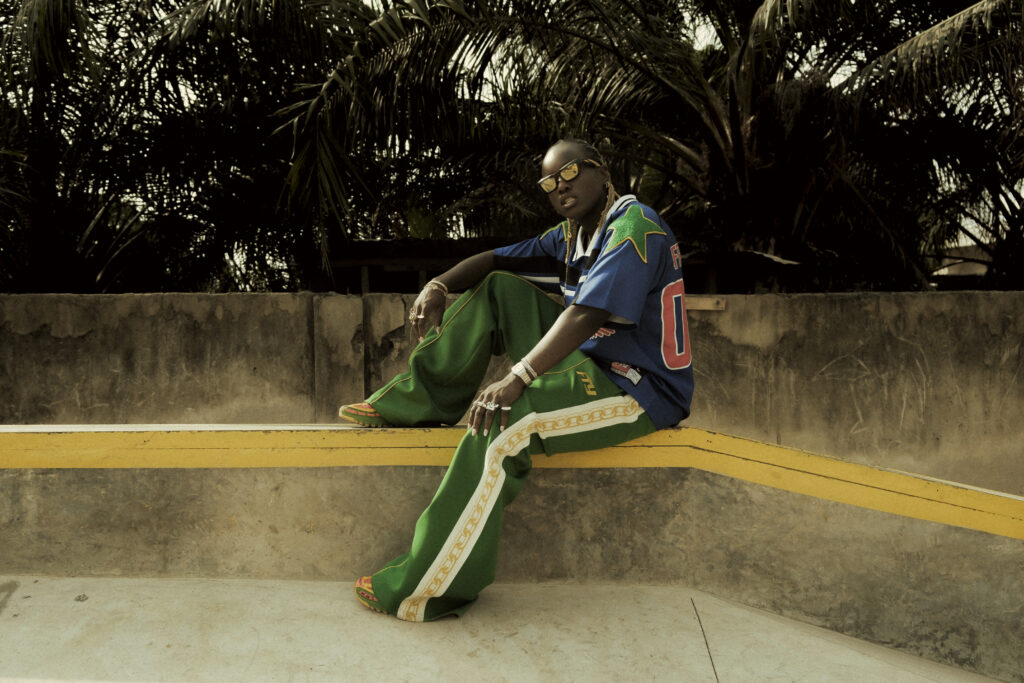
The wave of streetwear originating from the continent is a celebration of African creativity and a statement against the homogenization of fashion. It is, in fact, the total opposite of homogeneous. African streetwear draws inspiration from a wide range of sources; bold colours and motifs of traditional West African fabrics, the streetwise swagger of hip-hop culture, the DIY and creative upcycling that comes out of second-hand markets, and the list can go on. This diversity is reflected in the wide variety of styles and trends in the scene, from the casual cool of skate culture to the elegant tailoring of menswear that can be seen on the streets of African cities like Lagos, Accra and Johannesburg. “A lot of foreign brands have been dubbing off our culture using Nigerian and Ghanaian patterns forever. So the fact that we’re owning it ourselves now and remaking it our own way is super cool.” Ireti says.
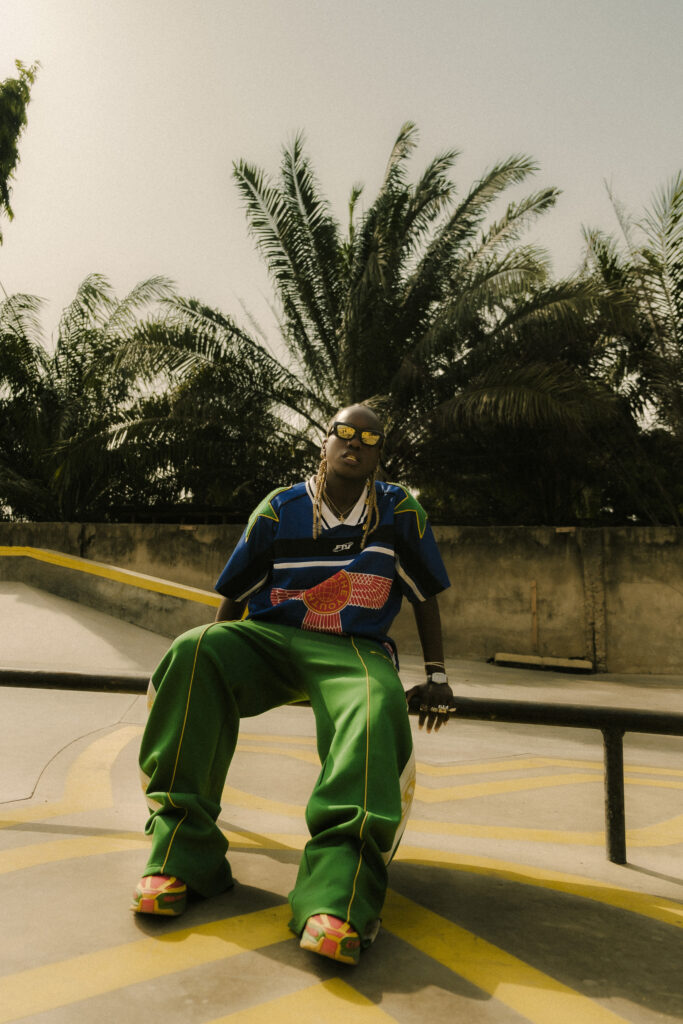
For many young Africans, streetwear is more than just a way to express themselves through dressing. It represents a connection to their heritage and a celebration of their culture. Skaters – a fast-growing subculture within the continent – for example, have found a way to express themselves and cement their community using streetwear. Many skaters in Africa are loyal to indigenous streetwear brands that incorporate the skater aesthetic with African elements, thus making them unique when compared to skaters in say London or Los Angeles.
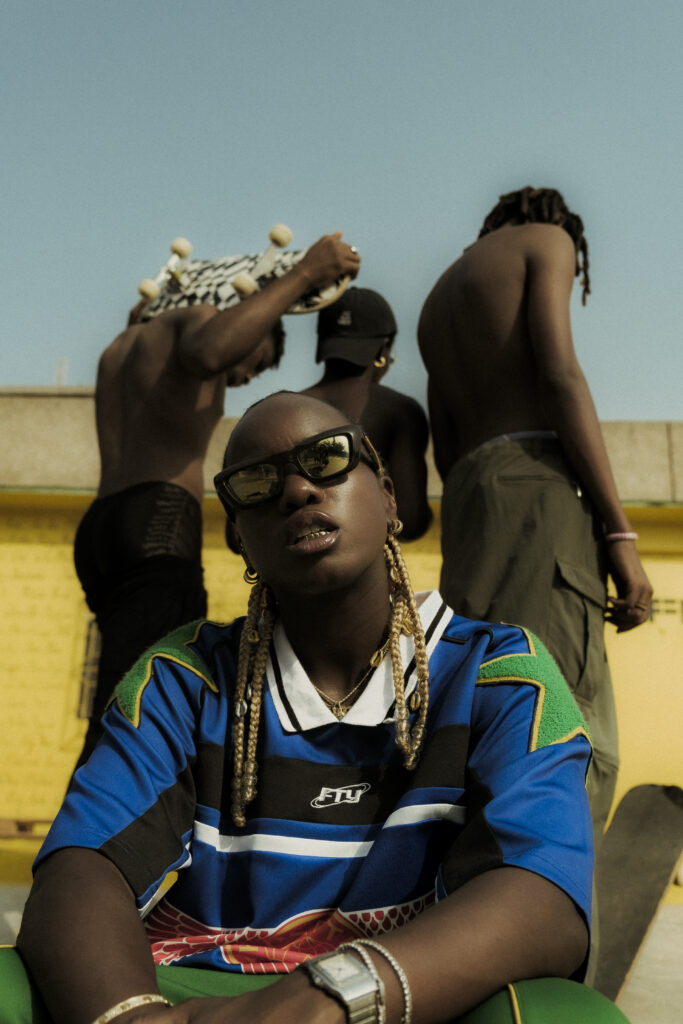
“Everyone is really dropping some fire stuff right now, the designs are just unique because it is both contemporary and deeply rooted in tradition,” Ireti says of the class of homegrown streetwear brands that are emerging out of the continent. When asked what some of her favourite streetwear brands are, she quickly mentions a slew of them. “Free The Youth, WWYD, Subwae Studios, Palmwine Icecream, 5200 Fashion, and ThirstyLab.” However, Ireti is quick to acknowledge that this list is not exhaustive because of the wealth of design talents on the continent. “There’s just so much fire stuff coming out of Africa right now that if I start, I honestly won’t stop. There’s also Waffles and Cream, Motherlan, I can really go on and on.”
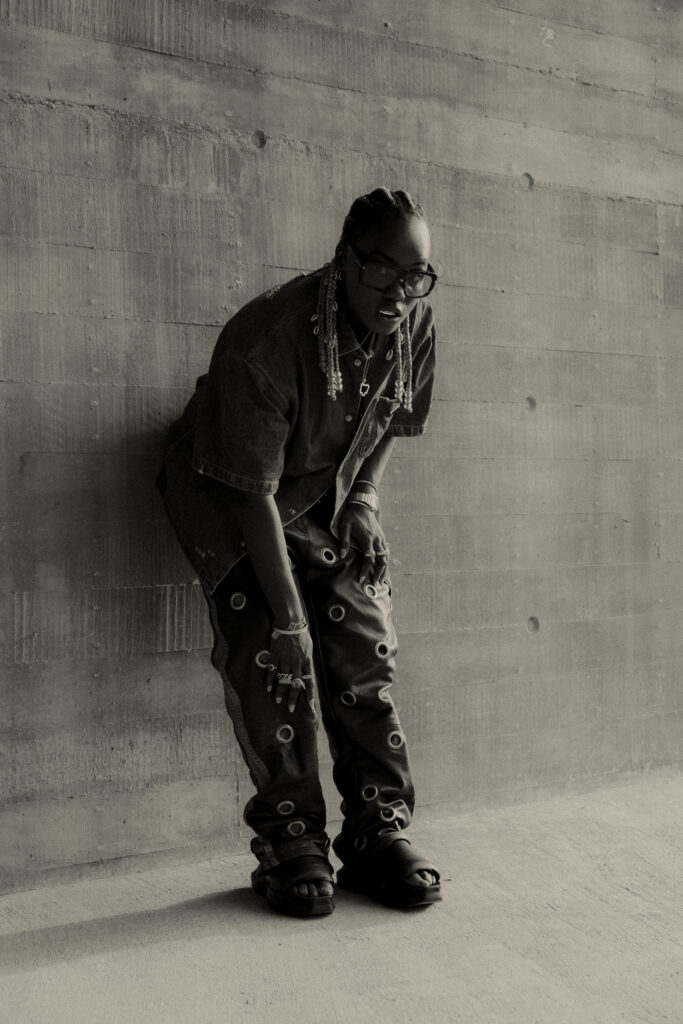
While the impact of Ireti’s Street Souk can be seen across industries from fashion to music and even among subcultures such as African skate communities, it hasn’t been an easy journey. From financial constraints to gender bias, Ireti has seen it all. “There have been a lot of challenges I’ve had to face these past five years. Instability in the economy, older people not understanding what you’re doing and the disrespect I get just because I am a young woman,” she says. “Streetwear is a heavily male-dominated industry, so just trying to navigate through all of that, sometimes it can be tough, but tough times never last for me.”
It is this knowledge and strong belief in the potential of Africa’s ingenious talents that motivated Ireti to start Street Souk in the first place, and we predict that it will only take her, and the African streetwear scene, further and further. The unperturbed Ireti is excited about the future, and she is making plans to extend her Street Souk convention beyond the borders of Nigeria and Ghana. “Street Souk has found its place as the centre and the ecosystem for African streetwear and in the future, my plan is to have a Street Souk in almost every country I can in Africa,” she says. “Africa has always been the dream and hopefully one day we will take Street Souk to other parts of the world too.”
Credits:
Creative direction: Richmond Ekow Barnes
Producer: Elsie Ayotunde Cullen
Photographer: Yussif Al Jabaar
Videographer: Kumi Obuobisa
Assistant Videographer: Orich Studios
Stylist: Wiz Kojo
Make-Up Artist: Judah’s Makeover
Hair: Afro Ele
Drone Footage: Kweku Yeboah
BTS Photographer: Isaac Jones
Cover photo extras:




![ZINO VINCI’S ‘FILTHY & DISGUSTING’EP BRINGS YOU TO THE CORE OF THE ARTIST [@ZinoVinci]](https://guap.co/wp-content/uploads/2023/10/Zino-4.jpg)

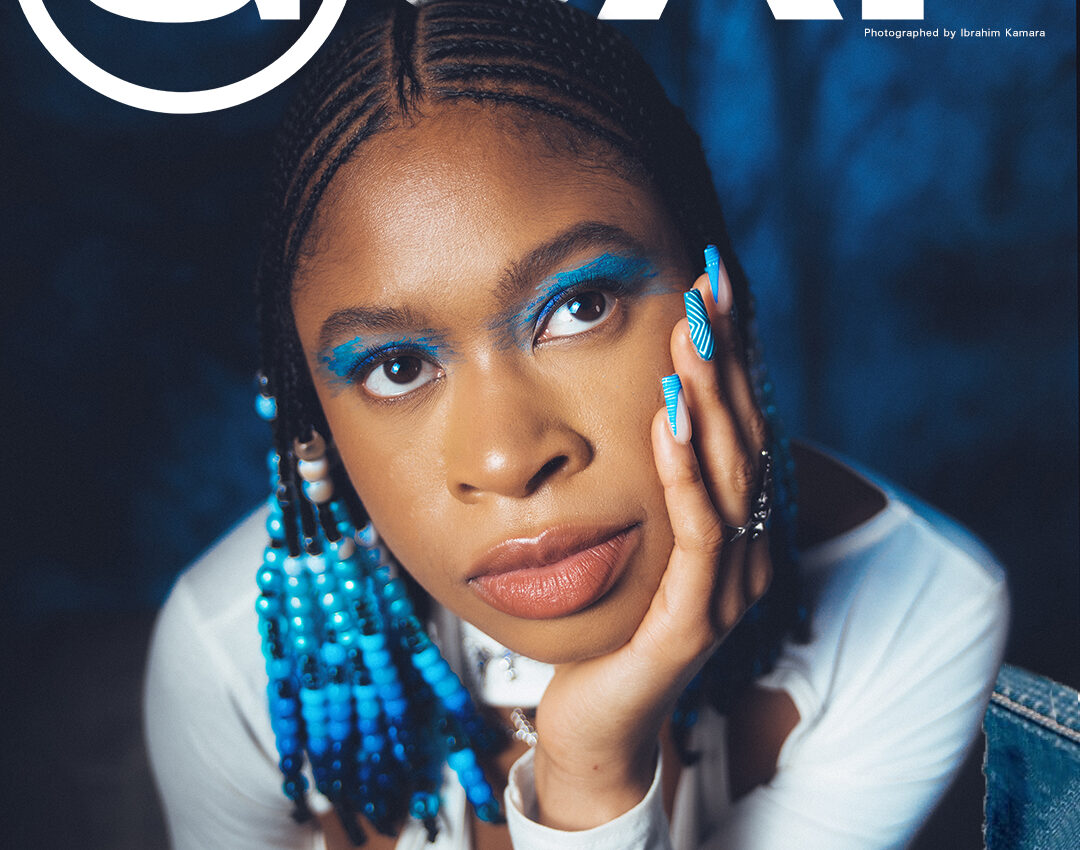
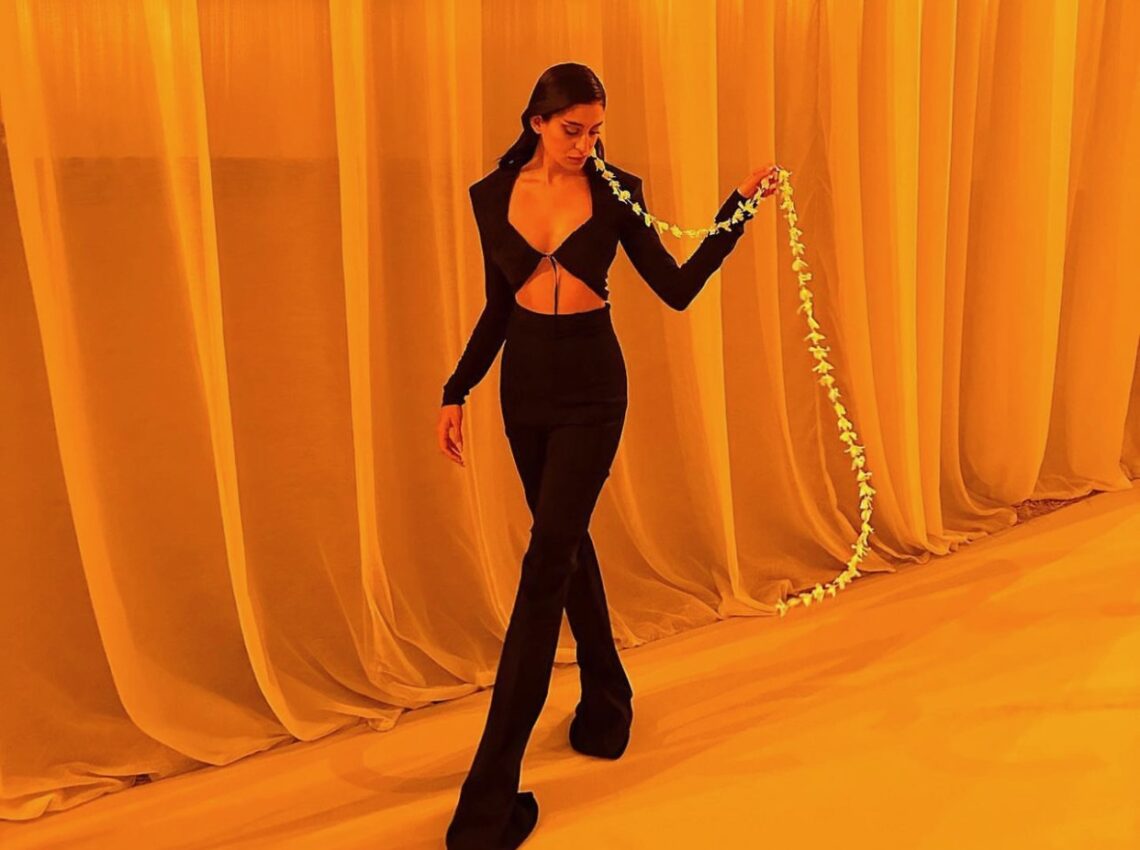

4 Comments
[…] Founded by Jomi Marcus-Bello in 2010, Wafflesncream has been a fixture in the Nigerian skateboarding community for over eight years, and the brand’s latest release is a testament to their consistent commitment to supporting and invigorating their local skating and fashion scene. […]
[…] Co-founders and visionaries, Ekow Barnes and William Annoh, are dedicated to not only producing creative works but also representing the best talents in the fashion, lifestyle, and film industries. In an exclusive interview with GUAP, the duo shed light on the significance of talent representation, particularly in the present African creative renaissance. […]
[…] in challenging conventional norms, using fashion as a canvas to voice the dreams, struggles, and aspirations of the young generation in and outside of Africa. Collaborating with local photographers, artists, and musicians, the brand […]
[…] in 2018, Christopher Akpo’s SUBWAE brand has swiftly ascended the African streetwear ranks, establishing itself as a storytelling brand with a distinct and evolving aesthetic. The […]
Comments are closed.